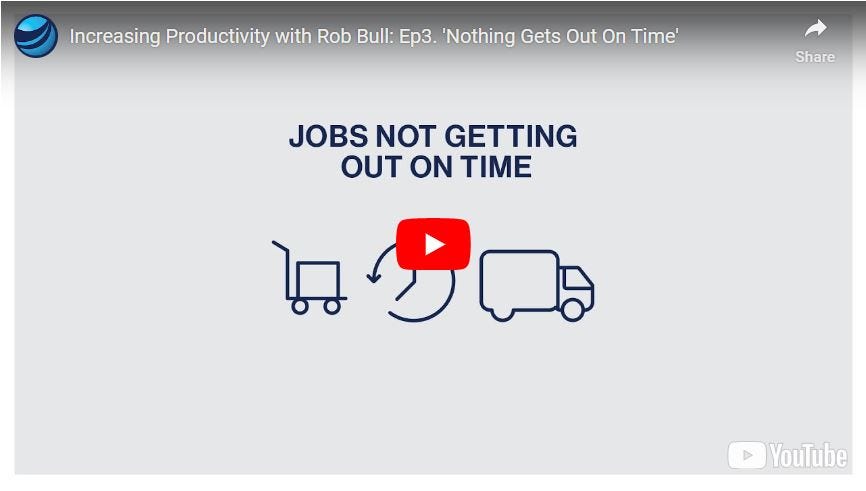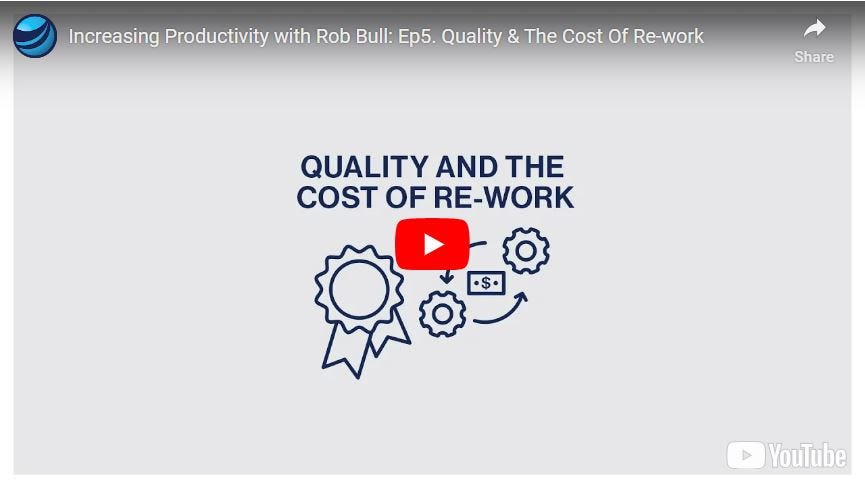Increasing Productivity With Rob Bull: EP2. Resource Constraints
Welcome to our Increasing Productivity video series with Rob. Today we’re discussing how to deal with resource constraints and doing more with less.
So, Rob, how are resource constraints affecting kiwi engineer’s ability to grow?
Yeah good question Andy. What I tend to find, in experience I see out in the field is that a lot of the businesses have grown quite quickly and they haven’t re-looked at how they use their resources. And that could be the staffing, it could be the equipment or even materials and how they order it and bring it into the shop so it’s there just in time so we can create that great flow. So the resources constraints are about re-thinking about the processes so that they can make sure that they have that streamlined work when it’s busier and more complex than what they did when they were first starting out.
Yeah ok, so just to be clear, we’re not talking about finding ways to work staff harder.
No, absolutely not. It’s always about that cliché – working smarter not harder. What happens with the resources is that they might have had a big order and they now need different staffing so it’s looking at the skill mix. Or it might be different equipment to produce slightly different quality issues, so it’s all about reviewing their processes and their systems to maintain that growth so that they don’t work their teams harder and they get out more product at a higher quality with the same amount of resources that they might originally have.
So are there some typical areas you find engineering companies in particular can make adjustments to improve the efficiencies of tasks?
Yeah absolutely.
Workshop organisation is certainly the most common. Having everything in its place, and everything has its place. That’s gone from Grandfather’s shed in the shadow boards and the tools and it’s keeping that method as simple as possible. But when you think about the movement that the staff need to have and you can quickly walk 20 metres around the workshop to get the right tool or the right consumables, if you can reduce that down to 2 or 3 metres you can save a lot of time and effort when you add all of that time over a day or even a week. So it is about keeping things tidy and keeping things organised so again we don’t have that wasted downtime, looking for equipment, or even when we do it’s broken or it’s not in a place that we can use effectively. So those are the first 2 major factors.
The second one is job planning and communication. Particularly as they are a growing business I often see smaller companies that are growing fast that they use the same processes, they communicate the same way, where now they might have 3 or 4 times the amount of orders. So the boss who used to know everything about what was happening in the workshop now is finding out about an issue right at the end and he spends more time firefighting. So it’s all that wasted time firefighting. It’s keeping things tidy, and it’s having a well organised workshop.
Yeah, that’s great. So, for engineers to improve their efficiencies, 3 simple but effective ways would be:
1. Keep supplies the engineers require as close as possible to them – this reduces their time spend walking, or motion or movement.
2. Make everything visible. So jobs and deadlines.
3. Have a standard of where everything goes, and making sure that standard is maintained.
Even if it’s a weekly clean up. Get rid of old stuff you might say, that you may think could be useful one day. Is that fair?
Yeah absolutely. I see that all the time. You chuck out the old stuff, ‘Oh but we always need it’ but the cost of replacing it when you do need it is far outweighed by having a nice efficient workshop and you’ll gain the value of whatever that is, equipment or machinery or off piece of part. You’re going to get that money back by having a well organised, efficient workshop.
Yeah that’s great. Thanks Rob.
So that wraps us up for now. Check out our next video where we’ll be discussing the issue of things not getting out on time: EP3. 'Nothing Gets Out On Time'
 Need assistance?
Need assistance?







